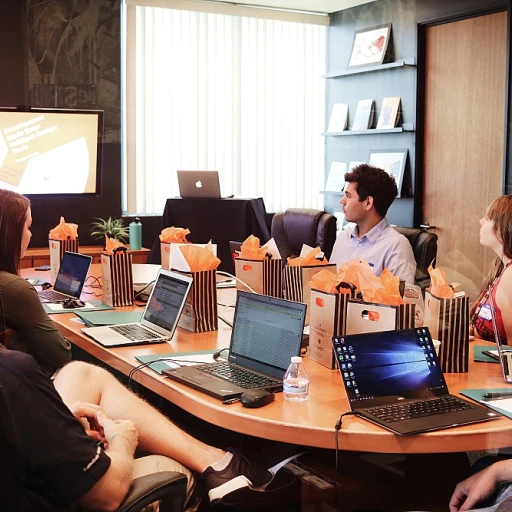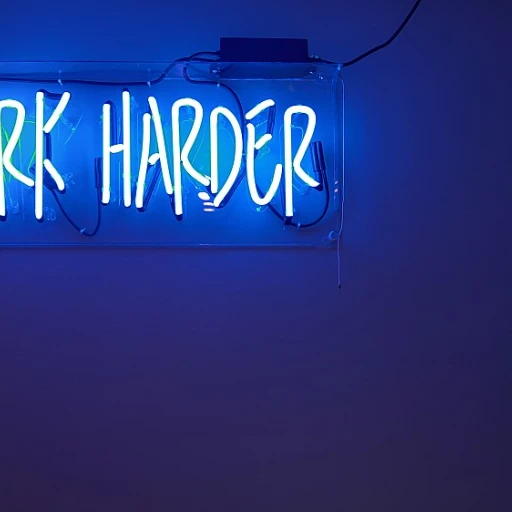
Understanding the private equity interview process
The Unique Structure of Private Equity Interviews
Private equity interviews are known for their rigorous and multi-stage process. Unlike standard HR interviews, these sessions are designed to assess both technical and behavioral competencies, reflecting the high expectations of equity firms. Candidates should expect a blend of traditional HR questions and specialized investment case studies, often tailored to the specific focus of the firm—whether it is growth equity, real estate private equity, or buyout funds.Stages and What to Expect
The recruiting process typically unfolds in several rounds:- Initial Screening: This stage often involves HR professionals evaluating your resume and motivation for joining a private equity firm. They may probe your understanding of the industry, your interest in investment banking or equity, and your fit for the company culture.
- Technical Assessment: Candidates will face technical questions on topics like LBO modeling, IRR calculations, cash flow analysis, and deal structuring. Modeling tests or paper LBO exercises are common, especially for roles requiring strong financial modeling skills.
- Case Studies and Investment Thesis: Real case studies are presented to assess your ability to analyze companies, build an investment thesis, and discuss potential growth or debt strategies. These scenarios often mimic real-world challenges faced by equity firms.
- Behavioral and Situational Interviews: Interviewers will explore how you handle complex situations, work in teams, and manage sensitive topics or gaps in your background. This is where your soft skills and self-awareness are evaluated.
Why the Process is So Demanding
Private equity firms invest significant capital and require professionals who can demonstrate both analytical rigor and sound judgment. The interview process is designed to filter for candidates who not only excel at technical modeling but can also communicate effectively, handle pressure, and align with the firm’s values. Real estate private equity and growth equity roles may emphasize different aspects, but the core process remains similar. For a deeper understanding of what HR professionals look for in these interviews, you can review this comprehensive guide on what to expect from a human resources assistant job description. Throughout the process, expect a mix of technical, behavioral, and situational questions. Later sections will cover the specific competencies evaluated, common interview questions, and practical strategies to help you succeed in equity interviews.Key HR competencies evaluated in private equity interviews
What HR Looks for in Private Equity Interviews
Private equity interviews are not just about technical skills or financial modeling. HR professionals in equity firms are focused on a set of core competencies that go beyond numbers. Understanding these can help you stand out in the recruiting process.
- Analytical Thinking: Firms want candidates who can break down complex investment cases, interpret financial statements, and assess company growth potential. This is crucial for roles involving LBO models, IRR calculations, and real estate private equity deals.
- Communication Skills: You will need to clearly explain your investment thesis, walk through a case study, or discuss a paper LBO. HR is looking for candidates who can articulate their thought process, both in interviews and in written case studies.
- Teamwork and Collaboration: Private equity is rarely a solo effort. Firms value candidates who can work with deal teams, investment banking partners, and portfolio company management. Behavioral interview questions often probe your ability to handle group dynamics and resolve conflicts.
- Adaptability and Learning Agility: The private equity landscape is always evolving. HR wants to see that you can adapt to new investment models, regulatory changes, or shifts in the market, such as the rise of growth equity or changes in debt structures.
- Ethical Judgment: Integrity is non-negotiable in private equity. You may be asked situational questions about handling confidential information or managing conflicts of interest.
How These Competencies Show Up in the Interview Process
Throughout the interview process, you will encounter a mix of technical questions, behavioral scenarios, and case studies. For example, you might be asked to analyze a real company’s cash flow, build an LBO model, or discuss a recent deal in the news. HR will observe how you approach these challenges, not just the final answer.
In addition, the trend toward trust-based time off policies is influencing what HR looks for in candidates. Flexibility, self-motivation, and accountability are increasingly important, especially in growth equity and real estate private equity roles where work-life balance can be a challenge.
Ultimately, preparing for equity interviews means understanding what HR values and being ready to demonstrate those qualities, whether you are tackling technical modeling tests or answering behavioral interview questions.
Common HR interview questions and how to answer them
What to Expect from HR Interview Questions in Private Equity
Private equity interviews are known for their intensity, but the HR stage is just as crucial as the technical rounds. HR interviewers in private equity firms are looking for more than just financial modeling skills or knowledge of LBOs and IRR calculations. They want to understand your motivations, your fit with the firm’s culture, and your ability to handle the unique demands of the investment environment.
Types of Questions You’ll Encounter
- Motivational Questions: Why do you want to work in private equity? What attracts you to this specific firm or sector, such as real estate private equity or growth equity?
- Background and Experience: How has your experience in investment banking or consulting prepared you for private equity? Can you describe a time you worked on a deal or investment thesis?
- Behavioral Interview Questions: Tell me about a time you faced a challenging situation in a team. How did you resolve a conflict or handle pressure during a critical phase of a deal?
- Technical Understanding: While HR won’t ask you to build an LBO model or perform a paper LBO, they may check your grasp of key concepts like cash flow analysis, debt structures, or what makes a company an attractive investment.
- Firm Fit and Values: How do your values align with our firm’s mission? What do you think distinguishes our investment process from other equity firms?
How to Approach Your Answers
- Be Specific: Use real examples from your experience, whether it’s a case study, a growth equity deal, or a challenging recruiting process.
- Show Self-Awareness: Acknowledge any gaps in your background honestly and explain how you’ve worked to address them.
- Connect to the Role: Relate your answers to the firm’s focus, whether it’s real estate, growth, or buyout investments. Highlight your understanding of the private equity model and the importance of financial modeling tests.
- Demonstrate Cultural Fit: Private equity firms value team players who can thrive in high-pressure environments. Show that you understand the firm’s values and can contribute positively to its culture.
Resources for Further Preparation
If you’re looking for more detailed guidance on how to handle HR interview questions in private equity, this resource on navigating HR job interviews offers practical tips and real-world examples to help you stand out in the recruiting process.
Handling behavioral and situational scenarios
Approaching Behavioral and Situational Scenarios with Confidence
Private equity interviews often include behavioral and situational questions to assess how you handle real-world challenges. These scenarios are designed to evaluate your judgment, communication, and ability to work under pressure—key competencies for HR roles in equity firms. Interviewers may present you with situations involving conflict resolution, team dynamics, or ethical dilemmas. For example, you might be asked how you would address a disagreement between investment team members during a high-stakes deal, or how you would manage sensitive information in a growth equity or real estate private firm context. Your responses should reflect your understanding of the firm’s culture and your ability to balance confidentiality with transparency.- Use the STAR method (Situation, Task, Action, Result) to structure your answers. This helps you clearly explain the context, your role, the steps you took, and the outcome.
- Demonstrate your knowledge of private equity processes, such as how HR supports the recruiting process for investment banking professionals or manages talent during a company’s growth phase.
- Highlight your experience with technical aspects, like supporting teams during LBO model case studies, modeling tests, or paper LBO exercises. Even if you are not performing the modeling, understanding the pressure points for candidates and teams is valuable.
- Showcase your ability to handle sensitive topics, such as gaps in employment or questions about a candidate’s fit for a particular investment thesis or deal structure.
- "Describe a time you had to mediate between two senior team members with conflicting views on a deal or investment model."
- "How have you handled confidential information during a company acquisition or growth equity investment?"
- "Tell us about a situation where you had to adapt quickly to changes in the recruiting process for an investment banking or real estate private equity role."
Addressing gaps and sensitive topics in your background
Discussing Career Gaps and Sensitive Topics with Confidence
Addressing gaps or sensitive areas in your background during a private equity interview can feel daunting, but it is a crucial part of the recruiting process. Equity firms, especially those focused on investment banking, growth equity, or real estate private equity, expect candidates to be transparent and self-aware. Here’s how to approach these topics:- Be Honest and Direct: If you have a gap in your employment history or a non-linear career path, acknowledge it upfront. Private equity firms value integrity and the ability to own your story. Briefly explain the reason for the gap, whether it was for further education, personal development, or unforeseen circumstances.
- Highlight Relevant Growth: Use the opportunity to show what you learned during the gap. Did you complete a financial modeling course, work on a case study, or develop an investment thesis? Relate these experiences to the skills required for the role, such as building an LBO model, analyzing cash flow, or understanding IRR calculations.
- Prepare for Follow-Up Questions: Interviewers may probe deeper into your background. Be ready to discuss how you stayed connected to the industry, kept your technical skills sharp, or engaged with equity interview case studies and modeling tests during your time away.
- Addressing Sensitive Topics: If you left a previous company due to restructuring, a failed deal, or other sensitive reasons, focus on what you learned and how you contributed to the process. Avoid negative language about former employers or teams. Instead, emphasize your resilience and adaptability—qualities highly valued in private equity interviews.
Turning Challenges into Strengths
Private equity interviewers often use behavioral interview questions and situational scenarios to assess how you handle adversity. When discussing gaps or sensitive topics:- Frame your experiences as opportunities for growth and learning.
- Connect your story to real-world investment situations, such as managing a challenging deal, adapting to a new investment model, or navigating a complex LBO scenario.
- Demonstrate how your unique path has given you a broader perspective on equity investments, technical analysis, or company operations.
Practical preparation strategies for HR interviews in private equity
Building a Focused Preparation Routine
Preparing for HR interviews in private equity firms requires a targeted approach. The recruiting process is rigorous, blending technical assessments with behavioral interview questions. Here’s how to structure your preparation to maximize your chances:- Master the technical basics: Review core concepts like the lbo model, irr calculations, cash flow analysis, and financial modeling. Many equity interviews include modeling tests, paper lbo exercises, or case studies. Practice building a simple lbo model from scratch and explaining your logic clearly.
- Understand the firm’s investment strategy: Research the private equity firm’s portfolio, recent deals, and growth equity or real estate private investments. Be ready to discuss why you’re interested in their specific approach, whether it’s buyouts, growth equity, or real estate.
- Prepare for case and deal discussions: You may be asked to walk through a real deal or investment thesis. Practice structuring your answers: outline the company, market, deal rationale, risks, and how you would add value post-investment. If you have investment banking experience, highlight relevant transactions and your role.
- Anticipate behavioral and situational questions: Reflect on your past experiences with teams, handling setbacks, or managing sensitive topics. Use the STAR method (Situation, Task, Action, Result) to organize your responses. Equity interviews often probe your ability to navigate complex, high-pressure environments.
- Simulate the interview process: Conduct mock interviews with peers or mentors. Focus on both technical questions and HR scenarios. Feedback will help you refine your delivery and boost confidence.
- Stay current on market trends: Read up on recent private equity deals, changes in debt markets, and trends in growth equity or real estate. This knowledge helps you stand out in case study or technical discussions.
Leveraging Resources and Practice Materials
- Use online platforms: Many sites offer sample private equity interview questions, case studies, and technical guides. Practice with real case examples and lbo modeling tests.
- Review your resume and background: Be ready to address gaps or sensitive topics honestly and positively. Prepare concise explanations for transitions, time off, or changes in your career path.
- Network with industry professionals: Insights from those who have gone through the process at equity firms can provide valuable tips and help you understand what each firm values in candidates.













